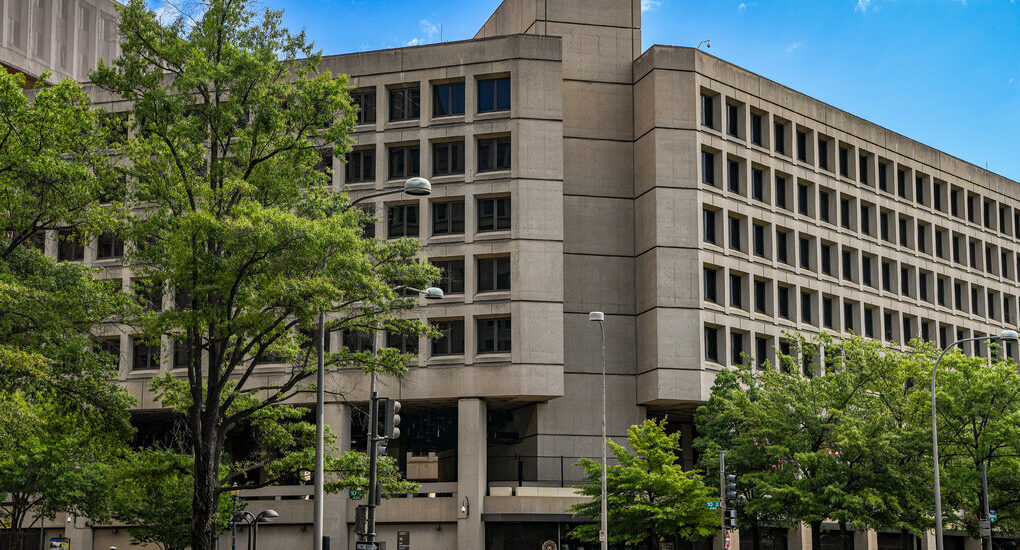The House scrapped votes on rival bills late Monday that would narrow the scope of a powerful surveillance tool after an ugly fight broke out among Republicans, likely punting until next year on plans to renew but also limit an expiring wiretapping law at the heart of the program.
In a hastily organized closed-door meeting, Republican members traded accusations and even expletives as they argued over which of two measures to overhaul the law, known as Section 702, should be put to the floor. Under the law, the government can conduct warrantless surveillance of foreigners abroad but also sometimes sweeps in Americans’ private messages.
The dispute effectively upended Speaker Mike Johnson’s plans to have the House vote on both measures this week and send to the Senate whichever one secured a larger majority — a rare move that conservatives vigorously protested.
“I’ve never seen us bring multiple bills at the same time from different committees and put them on the floor and have a beauty pageant,” said Representative Thomas Massie, Republican of Kentucky and a member of the Rules Committee, which would have had to approve the maneuver. “I think this would set a horrible precedent for legislating.”
Lawmakers of both parties are determined to impose limits on the program, which sometimes collects the private messages of Americans in contact with foreign surveillance targets. They are especially at odds over how severely to restrict officials’ ability to plumb Americans’ communications once collected — and Mr. Johnson has not yet endorsed one approach over the other.
On one side, progressive congressional Democrats have joined with harder-right Republican allies of former President Donald J. Trump to rally around a Judiciary Committee bill that would sharply curtail the law while enhancing protections for Americans’ privacy rights.
On the other, centrists and national security hawks have backed an Intelligence Committee bill that would enact more modest changes. They have denounced the more reform-minded legislation as likely to put the country in greater danger from terrorists, hackers, spies and other threats.
Outside groups have also been sounding the alarm about the implications of each bill.
Backers of the Judiciary bill have tarred the Intelligence rival as a “wolf in sheep’s clothing,” as the Brennan Center for Justice put it, saying it would fail to rein in warrantless surveillance and would expand government spying powers.
And supporters of the Intelligence bill have called the Judiciary version “seriously flawed,” as a letter on Monday signed by three dozen former senior national security officials contended. They added that it would cripple the government’s ability to use information it had lawfully collected to protect Americans and prosecute a variety of crimes.
During a meeting of the Intelligence Committee last week, Representative Michael R. Turner, Republican of Ohio and chairman of the panel, cast those omissions in the rival bill as serious shortcomings.
“Under their bill, 702 information would not be admissible in criminal prosecutions for horrific crimes such as child pornography, human trafficking, murder and even money laundering,” he said.
Mr. Turner repeated that argument behind closed doors Monday evening, angering proponents of the Judiciary bill.
“The limitation is, for American citizens you get a warrant,” Representative Warren Davidson, Republican of Ohio, said to reporters, after privately accusing Mr. Turner of misrepresenting the Judiciary committee’s bill. He charged that proponents of the Intelligence Committee bill “want to basically be like a police state where you can keep not getting a warrant.”
First enacted in 2008, Section 702 of the Foreign Intelligence Surveillance Act legalized a form of the once-secret warrantless surveillance program the Bush administration started after the terrorist attacks of Sept. 11, 2001.
Under Section 702, the government is empowered to collect, without warrants and from domestic companies like AT&T and Google, the messages of noncitizens abroad — even when those targets are communicating with Americans. As a result, the government sometimes collects Americans’ private messages without a warrant.
Congress has acted several times — in 2012 and again in 2018 — to extend Section 702. The law is now set to lapse at the end of the month, though the surveillance program itself can lawfully keep operating until April.
But the law’s fate is now less certain.
Civil-liberties-minded Democrats long suspicious of the program have been joined by right-wing Republicans who have aligned themselves with Mr. Trump’s hostility to the F.B.I. because of the investigation into his 2016 campaign associates’ ties to Russia.
And disclosures that F.B.I. analysts had violated certain rules for when they may search for Americans’ information have helped fuel the push for significant overhauls.
The F.B.I. has already adopted internal reforms that the Intelligence bill would codify as law, while cutting down by 90 percent the number of bureau personnel with access to the raw database of intercepted communications.
The competing Judiciary bill would go much further, requiring officials to get a warrant before querying the repository using an American’s name or other identifier.
Privacy advocates and proponents of the Judiciary bill argue that warrants are necessary as a matter of constitutional principle and to avoid abuses. But Biden administration officials have said that they would strip the program’s effectiveness and endanger the country, including against terrorist threats rising from the Israel-Hamas war.
“The bill emerging from the House Judiciary Committee effectively guts the core of 702 and severely limits our ability to protect the homeland,” said Joshua Geltzer, a White House national security official, adding that the administration strongly favored the rival bill.
The bills diverge in other significant ways, including whether the government can buy information about Americans from data brokers, the kinds of crimes for which prosecutors may use Section 702 information as evidence and what sorts of companies can be compelled to participate in the program.
As lawmakers argued over the merits of the legislation, several looked to the annual defense authorization bill, which contains a short-term extension of the program without reforms until mid-April. That bill is scheduled for a vote later this week.
Mr. Johnson has tried to paint the short-term extension as a low-stakes way to buy negotiators time.
But the extension would create a window for a surveillance court to issue new annual orders that would allow the program to operate through April 2025 — even if the underlying law lapses after mid-April 2024. Some conservative lawmakers on Monday warned against that possibility.
Representative Chip Roy, Republican of Texas and an influential member of the ultraconservative House Freedom Caucus, which has opposed the short-term extension, said Monday that he opposed what he called a “jam-through extension” of Section 702 “that would kick it out til’ April of ‘25.”
“That way we have pressure to do our job,” Mr. Roy said.



